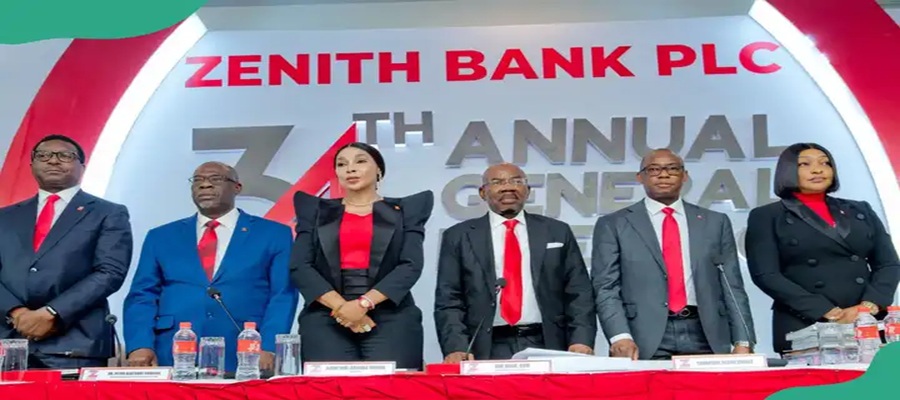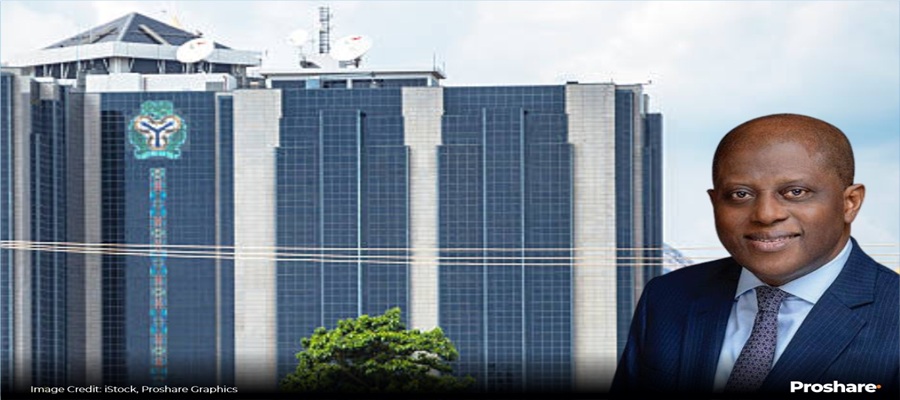/home/kenneth/web/nigeriacommunicationsweek.com.ng/public_html/wp-content/themes/zox-news/parts/post-single.php on line 153
">
Warning: Undefined array key 0 in /home/kenneth/web/nigeriacommunicationsweek.com.ng/public_html/wp-content/themes/zox-news/parts/post-single.php on line 153
Warning: Attempt to read property "cat_name" on null in /home/kenneth/web/nigeriacommunicationsweek.com.ng/public_html/wp-content/themes/zox-news/parts/post-single.php on line 153
Building a Strong Brand in Courier Service
Having a strong brand in courier business is an essential component of the business. Brand names evoke some kind of psychological feelings when you try to associate names with products they represent. Building a brand entails looking at your brand with fresh eyes considering where you are coming from, where you are at the moment are where you are headed..
A brand is a long-term profitable bond between an offering and a customer. This relationship is based on economic, emotional and/or experiential value, backed by everyday operational excellence and consistently measured for accountability, usually by customer profitability
Your brand resides within the hearts and minds of customers, clients, and prospects. It is the sum total of their experiences and perceptions, some of which you can influence, and some that you cannot.
A strong brand is invaluable as the battle for customers intensifies day by day in the lucrative courier business in Nigeria. It’s important to spend time investing in research, defining, and building your brand. After all your entire brand is the source of a promise to your consumer. It’s a foundational piece in your marketing communication and one you do not want to be without. But, like people too, the more you know about a brand, the more it seems to have its own individual personality.
One may wonder why some courier firms continue to dominate the market irrespective of the fact that other courier firms have sprung up and can actually deliver quality service. Brands are nurtured like babies and companies which have broken even still wield their powers to sustain their brands. Up coming courier companies that have not made name in the industry have to distinguish themselves with the quality of service they offer and make efforts to attract customers.
Two factors drive consumer choice: word-of-mouth and operational excellence. Every research study underscores the point that word-of-mouth is by far the most powerful force in driving or discouraging sales. If your best friend says a particular brand is effective and delivers promptly , are you going to patronize the brand , no matter what the company says about it? Operational excellence is absolutely critical, especially for those selling to other businesses. It makes no difference, for example, how cheap or pretty or how well advertised an offering is, if the product is not delivered when you need it. Even for consumers, operational excellence is key. How do you feel when you go into a retail store and can’t find a service clerk?
In the course of my duty as correspondent , I have come to observe how deficient and unprofessional some staff of courier companies could be .You won’t be surprised to walk into a courier firm and find the receivung clertk either sleeping or engaged in a discussion with a colleague and hardly have time for a client who has come to patronize the company .This affects the image of the company and it clearly contrasts with the way those successful courier companies’ staff attend to their clients . There is need for courier companies to engage their staff in training involving all cadres of the administration from the gate man to the manging director to improve overall business communication so as to clerly and effectively communicate the essence of the company.

Warning: Undefined array key 0 in /home/kenneth/web/nigeriacommunicationsweek.com.ng/public_html/wp-content/themes/zox-news/parts/post-single.php on line 493
Warning: Attempt to read property "cat_ID" on null in /home/kenneth/web/nigeriacommunicationsweek.com.ng/public_html/wp-content/themes/zox-news/parts/post-single.php on line 493
E-Financial
Zenith Bank Top Nigerian Bank Pick Ahead of GTCO, AccessCorp

Renaissance Capital Africa (Rencap) has named Zenith Bank Plc its top conviction pick among Nigerian banks, ahead of GTCO and AccessCorp, in a fresh research report highlighting the lender’s robust balance sheet and dividend potential despite sector headwinds.

Zenith Bank
The comprehensive review of the Nigerian banking industry notes that Zenith’s current market valuation lags its improving fundamentals, even as the NGX Banking Index posts strong gains recently.
Rencap upgraded Zenith from HOLD to BUY, lifting its target price by 96 per cent based on a lower risk-free rate from falling government bond yields, refined beta estimates, and expectations of cleaner assets post-forybearance resolutions.
Balance Sheet Strength Drives Outlook
Analysts project challenges to earnings growth from anticipated Central Bank of Nigeria (CBN) rate cuts but foresee higher dividend payouts from resolved forbearance and single obligor loan (SOL) exposures alongside rising cash profits.
“Although we expect banks to face challenges in growing earnings… the balance sheet clean-up… will support higher dividend payouts relative to prior years,” the report states, ranking Zenith first, followed by GTCO and AccessCorp.
Key positives include loan write-offs that bolstered asset quality, enabling sustainable growth amid financial system reforms.
Dividend Recovery in Focus
Sector profitability from 2023-2024 was inflated by unrealised foreign exchange gains, which regulations barred from cash dividends, capping payouts despite headline profits.
Zenith historically led payout ratios in 2021-2022 via strong cash generation and capital discipline; Rencap expects a rebound as pressures ease, attracting income-focused investors.
Tier-1 Leadership Reinforced
Zenith Bank recently topped Nigeria’s tier-1 capital rankings for the 16th straight year, per The Banker magazine (Financial Times), affirming its resilience and positioning for long-term value creation.
E-Financial
Here Are Nigerian Banks That Have Secured Their Licences


CBN
- Access Bank Plc
- Fidelity Bank Plc
- First Bank of Nigeria Ltd
- Guaranty Trust Bank (GTBank)
- United Bank for Africa (UBA)
- Zenith Bank Plc
- FCMB (First City Monument Bank) – currently pushing to raise additional capital to secure its international licence.
- Wema Bank
- Standard Chartered Bank (Nigeria)
- Citibank Nigeria
- Stanbic IBTC Bank
- Sterling Bank
- Globus Bank
- Premium Trust Bank
News
ICPC Charges Ozekhome with Forgery, Corruption Over London Property

Independent Corrupt Practices and Other Related Offences Commission (ICPC) has filed a criminal charge against Chief Mike Ozekhome, SAN, alleging his involvement in a corruption scheme connected to a London property.

Chief Ozekhome
The ICPC filed a three-count charge before the Abuja High Court through its Head of High Profile Prosecution Department, Osuobeni Akponimisingha. The charge, marked FCT/HC/CR/010/26 and dated 16 January, names Ozekhome as the sole defendant in the case.
In the first count, the commission alleged that Ozekhome, aged 68 and residing at No. 53 Nile Street, Maitama, Abuja, received a property described as House 79, Randall Avenue, London NW2 7SX, around August 2021. The ICPC stated that the property was purportedly given to him by one Mr. Shani Tali and that the act amounted to a felony contrary to Section 13 and punishable under Section 24 of the Corrupt Practices and Other Related Offences Act 2000.
In the second count, the senior lawyer was accused of making a false document with a Nigerian passport bearing the name “Mr. Shani Tali” around the same period. The commission alleged that the passport, marked A07535463, was intended to support a fraudulent claim of ownership of the London property. The alleged offence contravenes Section 363 and is punishable under Section 364 of the Penal Code CAP 532 Laws of the Federal Capital Territory (FCT), Abuja, 2006.
The third count alleged that Ozekhome dishonestly used the same passport to support claims over the property despite allegedly knowing the document was false, an offence said to violate Section 366 and punishable under Section 364 of the Penal Code.
Supporting documents attached to the charge include an extra-judicial statement allegedly made by the defendant on 12 January 2026, a judgment referenced as REF/2023/0155 dated 11 September 2025, interim forfeiture proceedings relating to the London house, a data page for “Shani Tali,” a letter dated 18 December 2025, and other expected materials.
The ICPC also listed several individuals expected to testify, including investigators Wakili Musa and Tosin Olayiwola, a representative of the Nigerian Immigration Service, and investigators Ebenezer Nduo and Blessing Monokpo, alongside any additional witnesses the commission may call. As of the time of reporting, the case had not yet been assigned to a judge.
The development follows an earlier investigation by the ICPC sparked by a petition from Olanrewaju Suraj, head of the Human and Environmental Development Agenda (HEDA), citing a judgment from a London property tribunal.
The tribunal’s ruling had linked Ozekhome and others to alleged forgery and fraudulent claims of ownership of the North London building. The petition accused several individuals of conspiring with corrupt Nigerian officials to procure forged identity documents for the purpose of “fraudulently claim[ing] ownership” of the property.

 E-Financial2 days ago
E-Financial2 days agoSEC Hikes Minimum Capital Requirements for Market Operators After a Decade

 Telecom2 days ago
Telecom2 days agoVodacom Crowned Africa’s Top Employer 3rd Year Running on Innovation, Ethical AI

 Telecom2 days ago
Telecom2 days agoStudy Shows Blocks in Telegram are Pushing the Underground Out

 News2 days ago
News2 days agoNigeria Off EU High-Risk Money Laundering List in Major Financial Win

 News2 days ago
News2 days agoNGX Unveils Net-Zero Plan for Greener Capital Market

 Telecom2 days ago
Telecom2 days agoGalaxy Backbone Marks Two Decades of Powering Nigeria’s Digital Evolution

 Telecom2 days ago
Telecom2 days agoGalaxy Backbone Marks 20 Years, Tops FG Website Scorecard

 Telecom43 minutes ago
Telecom43 minutes agoMTN CEO Toriola Hails Nigeria’s Telecom Transformation at MIPAD












